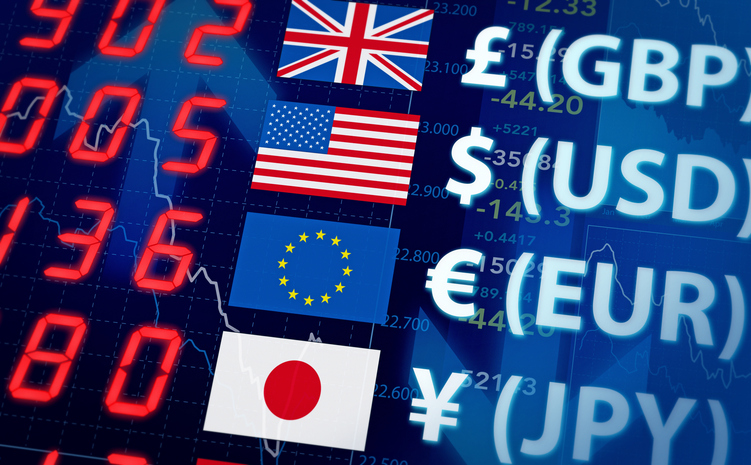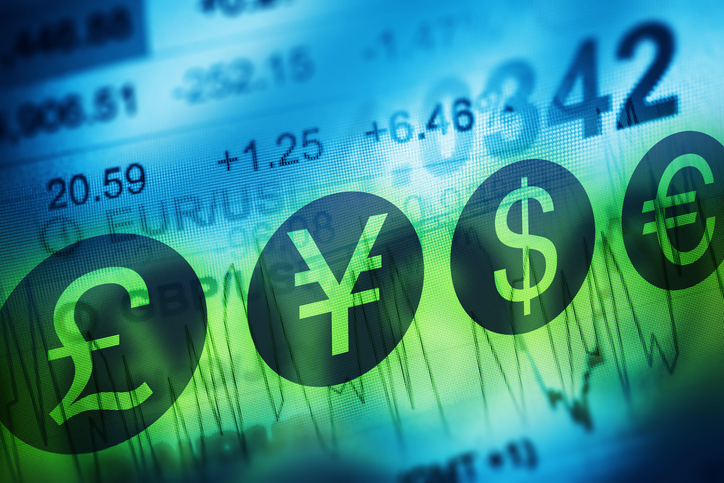The foreign currency market (forex) has a lot in common with the stock market. Both are speculative ways of investing, meaning that they offer higher risks and higher rewards than many other assets. Both markets move faster than many other investments, and like most investments, both have grown with the rise of online investment platforms. Forex vs stocks are by no means the same thing, but for all their differences, they have a surprising amount of overlap. A financial advisor can help you decide whether forex would be a wise addition to your investment portfolio.
What Are Stocks?
Stocks are equities. Meaning, when you buy a stock, you’re buying a fraction of ownership of the company which issued it. Buy a share of Google stock, and you literally own a piece of Google. That fraction is generally near-infinitesimal. Large companies will typically issue millions, if not billions, of shares of stock. A single share of stock in a company like this means that you own one-one billionth of the overall firm.
Combine enough equities, however, and you can take a serious stake in the overall company. In fact, this is essentially what a corporate takeover is. If a company has released enough of its value on the open market in the form of publicly traded shares, you can buy a plurality or even outright majority ownership of the company on the open market.
A company determines how much of itself to offer in the form of stock. It also chooses how many shares to offer. These decisions help determine the value of each share. For example, a company may release 1,000 shares of stock worth 20% of the company. In that case, each share of stock would be worth 0.2% of the total firm. The company itself would keep the 80% of ownership that it did not sell.
Types of Stock and Other Considerations
Stock can come in many different forms. The most common are private vs. public shares. Publicly traded stock is available on a market to consumers at large, meaning anyone who can legally invest in the financial markets. It has no specific restrictions. Privately traded stock is available only to specific investors. Typically a company will trade privately when it has not undergone the rigorous oversight that the SEC requires for a publicly traded firm.
Stocks can be traded in any forum, including in private deals. However, most stocks are sold on dedicated exchanges which list prices, volumes and other critical information.
The main value from stocks is what’s known as “capital gains.” This is when you sell the stock for more than you paid to buy it. Stocks can also pay dividends, which means that the company pays a share of its corporate earnings to the shareholders that collectively own the firm. Finally, stocks can come with voting and other corporate governance privileges. The exact details of what a stock offers in terms of dividends and governance privileges are determined by the company when it releases the stocks.
A company can even offer multiple different types of stock with different access to dividends and governance. This is typically known as offering “classes” of stock (such as Class A, Class B and so on).
What Is Forex?

Forex, short for foreign exchanges, is the market for global currency. The currencies of every different global economy trade against each other at different rates. For example, if the U.S. dollar is worth 0.83 euro, if you give a bank $1, you would receive 0.83 euros in exchange. If you give the bank 1 euro, you would receive $1.21 U.S.
Exchange rates change constantly based on changing rates of global demand. For example, if an economy’s exports or tourist sector start booming, their currency will gain value as people look for ways to buy things from that economy. Say you want to visit Thailand. You would need baht to spend on food and hotels. The more people who want to go to Thailand, the greater the demand for baht.
The same is true as investors seek opportunities among the markets of different economies. So if you want to buy London real estate, you would need pounds to make that transaction. Banks, meanwhile, need reserves of different currencies in order to meet the needs of spenders, savers and investors.
While an in-depth explanation of currency fluctuation is beyond the scope of this article, changing demand among economies is the short answer.
The profits of forex are expressed entirely as capital appreciation (or gains). You hope to ultimately sell your currencies for more than you paid to buy them. This happens when your foreign currency holdings gain value relative to the currency in which you do your banking.
For example, an American investor will do their banking and pay their taxes in U.S. dollars. As a result, this is the currency that defines their trading. When they buy foreign currencies, they’re hoping that the currencies they buy will gain value relative to the dollar.
Forex Exchange: An Example
When you invest in forex, you are literally exchanging one currency for another. Your goal is to hold a currency until it gains value against the currency you want. To understand that, we’ll look at an example in practice:
- Current Holdings: $10,000 USD
- Exchange Rate: USD 1 / EUR 0.83 || EUR 1 / USD 1.20
When we open our position, $1 U.S. will get you 0.83 cents in euros. We exchange $10,000 for 8,300 euros.
- Current Holdings: 8,300 EUR
- Exchange Rate: USD 1 / EUR 0.85 || EUR 1 / USD 1.176
The market moves and the dollar gains value against the euro. One dollar U.S. buys more euros, which means that one euro buys fewer dollars than it used to. If we exchange our money now, we would trade 8,300 euros and receive $9,760 USD.
So we don’t make any trades right now, since we would lose money relative to our original position.
- Current Holdings: 8,300 EUR
- Exchange Rate: USD 1 / EUR 0.81 || EUR 1 / USD 1.234
First of all, 1/0.81 is a fun number. It divides to 1.234567901234568.
The market moves and the euro gains value against the dollar. Now, one euro buys more dollars. If we exchange our money now, we would trade 8,300 euros and receive $10,242 in return.
We make this trade and earn $242 in profit.
Forex vs. Stocks
Forex and stocks play an important role in investment portfolios. While both can deliver high rewards, they’re also speculative assets with significant risks. So let’s take a closer look at the similarities and differences between forex vs. stocks:
Key Similarities
- Speculative Nature: Both forex and stocks offer the potential for high risk and high reward.
- Investment Approach: It’s essential to invest only what you can afford to lose, while recognizing the potential for substantial gains.
Major Differences
- Market Movement and Volatility:
- Both markets experience price fluctuations, but the forex market moves at a faster pace.
- Forex trading is highly liquid, making it more volatile than stocks.
- Stocks can be held for months or years, while forex positions are typically held for hours or days.
- Complexity:
- Forex trading is significantly more complex than stock trading.
- Currency prices are influenced by numerous factors, often making their movements appear random.
- Success in forex requires skill, discipline and the ability to navigate rapid changes.
- Capital Requirements:
- Forex trading often demands larger capital investments since market movements are measured in pennies or fractions of a penny.
- Significant capital is required to achieve meaningful gains, amplifying the potential for both returns and losses.
For most novice and retail investors, forex trading may not be a suitable strategy. It’s highly technical, difficult to master, and carries an elevated risk of significant losses in a short time frame. While experimenting with forex using discretionary funds is an option, it’s important to exercise caution and avoid dedicating a significant portion of your portfolio to this market.
Forex vs. Indexes
Stock market indexes are essential tools for assessing market performance, often used by traders and investors to benchmark specific sectors or the broader economy. In the U.S., major indexes such as the Dow Jones Industrial Average (DJIA), Nasdaq Composite, S&P 500 and Russell 2000 underpin a variety of financial products, including ETFs and futures contracts, that provide broad market exposure.
Forex trading and stock market index futures both present opportunities for traders, but they differ in structure, mechanics and appeal. Here’s a closer look at their key similarities and major differences of forex vs. stock indexes:
Key Similarities
- Speculative Nature:
- Both markets are speculative and cater to traders looking for short-term opportunities.
- High volatility in forex and e-mini futures creates the potential for substantial profits or losses.
- Leverage:
- Traders in both markets can use significant leverage to control large positions with relatively small capital investments.
- Leverage amplifies both the potential for gains and the risk of losses.
- Liquidity:
- Both forex markets and stock market index futures offer high liquidity, ensuring that traders can enter and exit positions efficiently.
- Liquidity is particularly high during peak trading hours.
- Extended Trading Hours:
- Both markets offer trading opportunities beyond standard U.S. market hours.
- Forex operates 24/5, while e-mini futures are traded nearly 24/7 with a brief daily pause.
Major Differences
- Market Scope:
- Forex focuses on trading currency pairs, influenced by global economic, political and financial events.
- Stock index futures are based on a basket of stocks within a specific index, reflecting the performance of sectors or the overall market.
- Volume and Scale:
- Forex is the largest financial market globally, with daily trading volumes exceeding $7 trillion.
- E-mini futures have significant volume, with daily notional values averaging $145 billion, but are smaller in scale compared to forex.
- Trading Complexity:
- Forex trading is more complex, as currency prices are influenced by diverse and interconnected factors such as central bank policies, geopolitical events, and economic data.
- Stock index futures are tied to broader market performance, making them more predictable in comparison.
- Capital Requirements:
- Forex trading often allows smaller initial investments, making it more accessible to retail traders.
- E-mini futures require higher capital due to minimum margin requirements, typically 5% of the contract’s value, though broker-imposed margins may vary.
- Volatility Patterns:
- Forex markets experience constant activity due to global participation, with volatility influenced by overlapping trading sessions.
- E-mini futures exhibit significant volatility during U.S. trading hours, with reduced activity during off-peak periods.
- Market Availability:
- Forex markets operate continuously during weekdays, ensuring constant trading opportunities.
- E-mini futures have a brief daily pause and may experience lower liquidity during off-peak hours.
Bottom Line

Forex is an over-the-counter or global decentralized market for foreign currencies. Traders can buy and sell currencies or exchange one currency for another. This market, which operates 24/7 and is a floating-rate market, makes international trade more efficient. It is much more volatile and complicated than the stock and bond markets. In one sense, all American stock and bond investors are affected by the forex market. That’s because U.S. securities are denominated in greenbacks, which is a type of currency.
Tips on Investing
- Adding forex vs. stocks to your portfolio can dramatically boost returns, but there are many ways to do that. Some of those ways could be damaging to your investments. Consider working with a financial advisor about how to make such a move. SmartAsset’s matching tool can help you find a financial professional in your area to help you find these answers. If you’re ready, get started now.
- If your investments pay off, you may owe the capital gains tax. Figure out how much you’ll pay when you sell your holdings with our capital gains tax calculator.
- Forex trading is absolutely not a good choice for novice investors. It is one of the highest-risk segments of the market, incredibly complicated and fast paced at the same time. However, if you have a good handle on investing and some money you can afford to risk on these volatile assets, there are several outstanding online brokerages for new traders in the forex market.
Photo credit: ©iStock.com/baona, ©iStock.com/narvikk, ©iStock.com/welcomia
